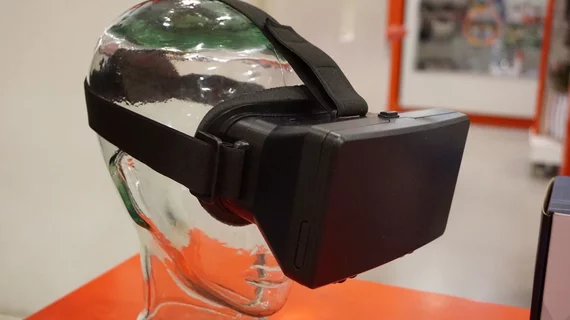An update from the U.S. Centers for Medicare and Medicaid Services (CMS) could soon open doors leading to reimbursement for virtual reality-based medical treatments.
CMS recently created a new level 2 Healthcare Common Procedure Coding System (HCPCS) code for VR device, RelieVRx (and its accompanying software). The determination places the device under the Durable Medical Equipment, Prosthetics, Orthotics and Supplies (DMEPOS) benefit category.
This update was made in response to an application submitted by AppliedVR Inc., a digital health company that specializes in VR-based therapeutics. RelieVRx, an immersive VR product of AppliedVR, is FDA-authorized for use in the treatment of chronic lower back pain. It includes a headset, a patented breathing amplifier and software that guides patients through daily sessions that incorporate research-backed pain management techniques. It must be prescribed and is not available via retail sales.
Matthew Stoudt, co-founder and CEO of AppliedVR, commented on the update in a prepared statement in April.
“We envision immersive therapeutics as a future alternative to a lifetime of pills or costly surgeries. Enabling broad coverage for the RelieVRx program will deliver a powerful, yet affordable and scalable digital solution for millions of people.”
HCPCS Code E1905 is described as a “virtual reality cognitive behavioral therapy device (cbt), including pre-programmed therapy software.” It went into effect on April 1.
Reimbursement rates have not yet been established, but CMS has requested pricing information from AppliedVR to be considered during future HCPCS public meetings in order to make a payment determination.
Although the determination does not yet mandate coverage, it does suggest that CMS is open to considering how related technologies can improve patient care and potentially reduce costs.
Vendors and clinicians have also taken note of the potential for VR-based treatments for behavioral health, as was evident in several booths at the annual HIMSS conference held in April.
In line with these trends, the U.S. Food and Drug Administration recently indicated that there has been an increase in applications for approval of VR medical devices. They recently released a list of all 39 VR products that are currently legal to be marketed in the U.S. through 510(k) clearance, De Novo classification or premarket application approval.
Highlighting the benefits of VR care, the FDA noted the technology's potential in the diagnostic and treatment process, citing its "ability to deliver both standard and entirely new types of content in highly immersive and realistic ways, remotely, and tailored to a variety of clinical contexts."
More to come soon.

